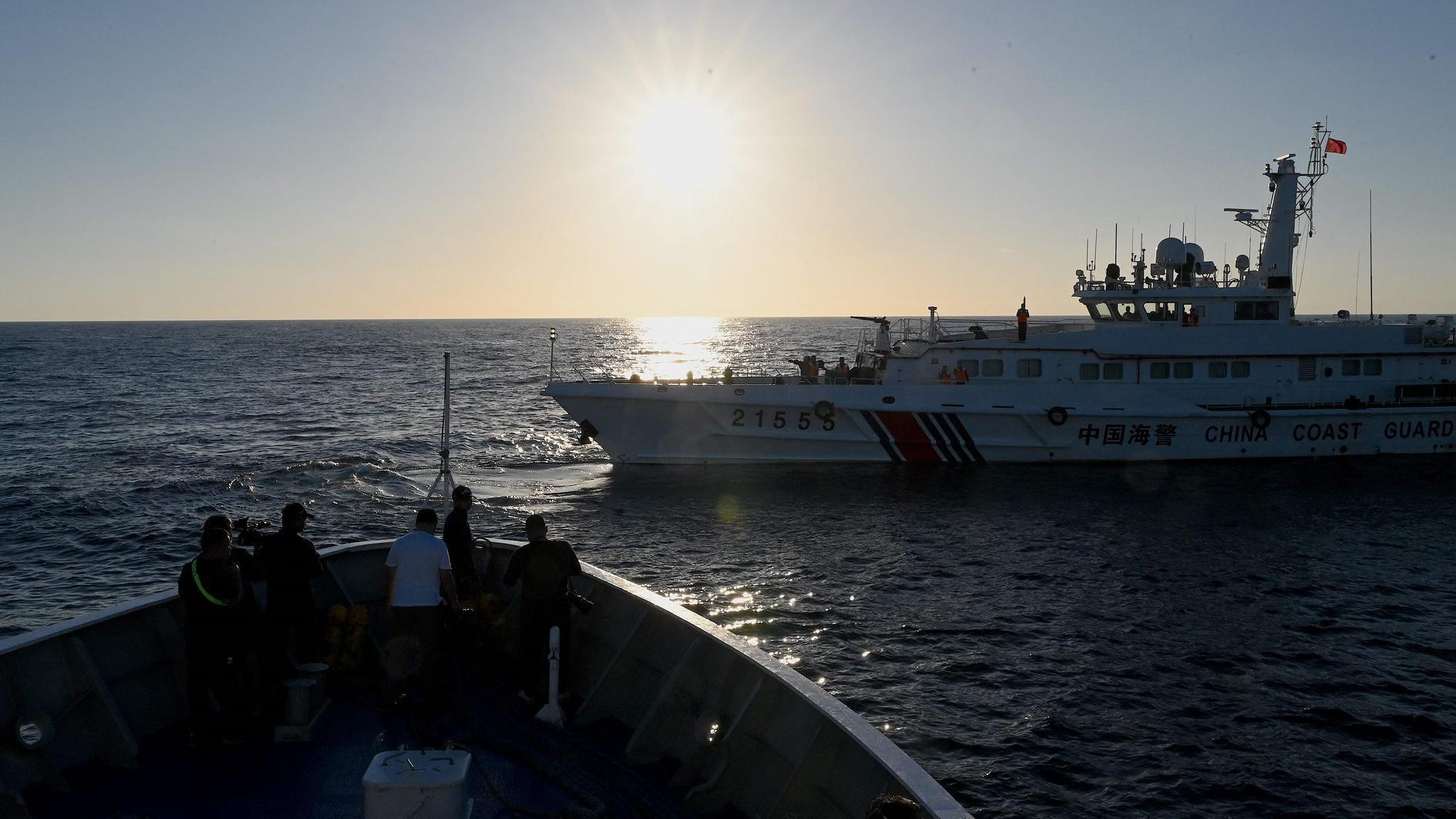
Ramming boats, building militarised islands and threatening perceived trespassers — China is escalating confrontations with the Philippines in a bid to push it out of the South China Sea, analysts say.
One of the most perilous flashpoints between the two nations is a submerged reef called the Second Thomas Shoal, where in 1999 the Philippine navy intentionally marooned a decrepit World War II ship to assert the country's territorial claims.
Still home to a small garrison of Filipino marines, the crumbling BRP Sierra Madre sits around 200 kilometers (120 miles) from the western Philippine island of Palawan and over 1,000 kilometres from China's nearest major landmass.
It requires frequent resupply missions, which China's coast guard has sought to thwart by firing water cannon at Philippine boats — and sometimes colliding with them.
The Philippines on Wednesday accused China's coast guard of ramming and boarding its navy boats at the Second Thomas Shoal.
A Filipino sailor lost a thumb in the confrontation, according to the Philippine navy.
"Beijing is seeking to take control of the Second Thomas Shoal," said Helena Legarda, lead analyst at the Mercator Institute of China Studies in Berlin.
"(China) is waiting for the ship to collapse or to become unliveable, forcing Manila to remove its contingent of marines."
That would leave Beijing poised to seize control of the reef, Legarda said, strengthening its foothold in a waterway rich in oil and gas deposits and through which trillions of dollars in trade passes every year.
Beijing claims sovereignty over almost the entire South China Sea despite competing claims from the Philippines and other Southeast Asian nations.
It rejects an international ruling that its assertions have no legal basis.
Wang Yiwei, director of the Institute of International Affairs at Renmin University of China, insisted Beijing was "very restrained" in defending what it sees as its territory.
'Bow down to Chinese power'
But other analysts point to increasingly bold Chinese actions to strengthen its presence.
Duan Dang, a Vietnam-based maritime security analyst, said Beijing was employing a "salami-slicing strategy".
That includes boosting "military, coast guard, and militia vessels at uninhabited features in the Spratly Islands", where the Second Thomas Shoal is located.
The broader aim is to push eastwards towards the neighbouring Sabina Shoal, encroaching on Manila's exclusive economic zone and "gradually (normalising) its presence and control", he said.
This has echoes of 2012, when Beijing took control of Scraborough Shoal, another strategic area of the South China Sea closest to the Philippines.
It has since deployed vessels that the Philippines says harass its ships and prevent its fishermen from accessing the fish-rich lagoon.
China has also engaged in a vast program of island-building, arming the artificial outposts with missile systems and even runways for its fighter jets.
Beijing ripped up roughly 6,000 hectares (15,000 acres) of reef to create about 1,300 hectares of new land for artificial islands in the Spratlys, according to research from the U.S.-based Centre for Strategic and International Studies released in 2022.
The militarised islands enable Chinese vessels to patrol as far south as Indonesia and Malaysia.
Beijing has also sought to enforce its sovereignty claim with new rules that — since Saturday — allow its coast guard to detain foreigners who trespass in the disputed waters for up to 60 days.
China aims to "coerce the Philippines into surrendering its lawful rights and entitlements under international law" in the South China Sea, said Jay Batongbacal, a professor at the University of the Philippines College of Law.
"These confrontations are all part of its steady employment of force... against the Philippines, to make it bow down to Chinese power," he told AFP.
'Global consequences'
Experts told AFP it was highly unlikely Beijing wanted war with Manila.
But President Ferdinand Marcos has warned that Beijing would come "very close" to an act of war if it wilfully killed a Filipino citizen.
The United States has also urged China to rein in its behaviour.
The Biden administration has said that "an armed attack" against Philippine public vessels, aircraft, armed forces and coastguard anywhere in the South China Sea would invoke a mutual defense treaty between the two countries.
Shanghai-based international relations scholar Shen Dingli told AFP there was a "possibility that Washington could get drawn into an armed conflict in the South China Sea".
"One consequence of U.S. involvement would be that... China restrains itself," Shen said.
"Another result would be that U.S. deterrence fails," he added. "Whichever happens, the consequences would be global."